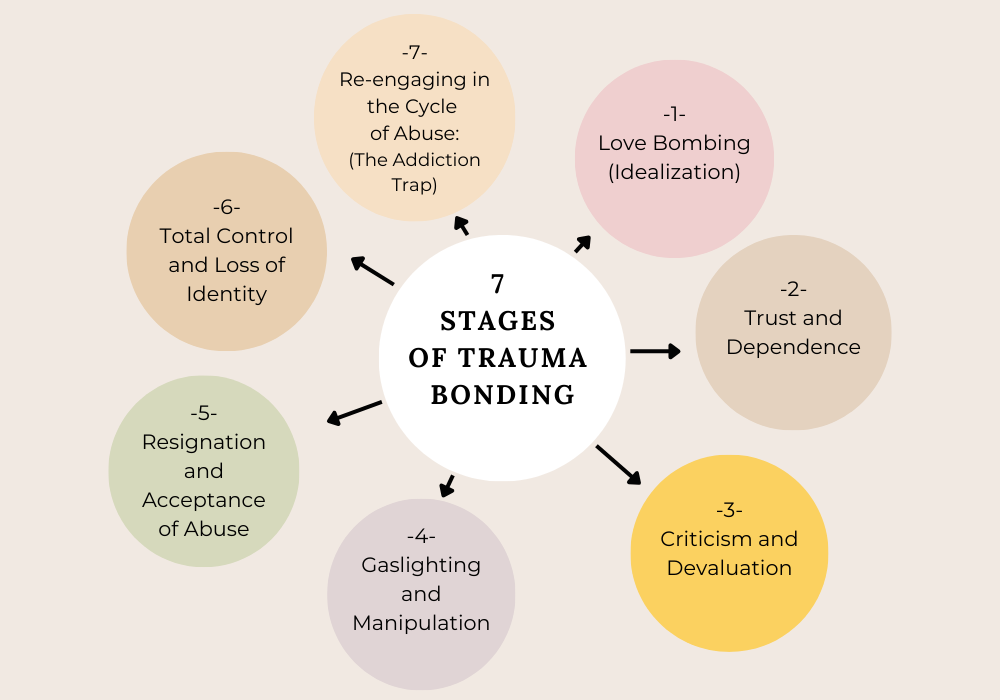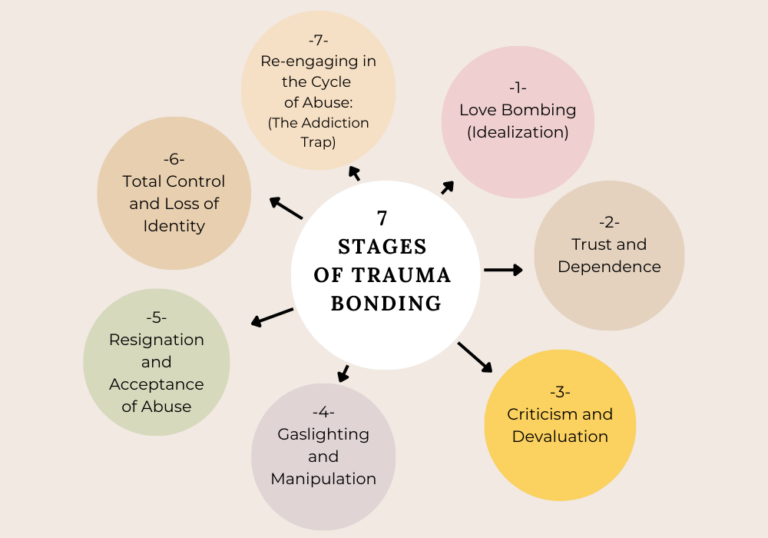What is self-sabotage?
Self-sabotage is a term used to describe when a person’s own good intentions backfire and end up affecting their performance rather than helping it. Self-sabotage can manifest in many ways, from completing tasks that aren’t worth the time to procrastinate on projects that are important to keep up with. Sometimes self-sabotage can seem like an impossible thing to overcome, but in reality, it’s something that can be learned and managed.
Self-sabotage is when our own best interests are not served. It can be an unintentional action or series of actions that have negative consequences. It can be a result of trying to be liked or trying to be perfect. And Procrastination is the most common form of self-sabotage.
Sometimes we do things that hurt ourselves or our career. This is called self-sabotage. It can happen when we are under a lot of stress, when we are tired, or when we are feeling overwhelmed.
Sometimes self-sabotage is intentional; we do things that will harm our career or hurt our reputation so that we can avoid a challenging situation or a difficult conversation.
Self-sabotage is our tendency to sabotage our own efforts and achievements. It’s a common problem that can be annoying, frustrating, and even harmful. But self-sabotage can also signify that you’re on the right track.
Why Do We Self-Sabotage? “12 reasons”
1-Fear:
A lot of the time, self-sabotaging comes from fear. You can be afraid of failing or even succeeding, which sounds weird, but can happen when success is stressful to obtain.
When people finally achieve a goal, it is not uncommon for them to fear what will happen next and as a result, they engage in behaviors that make the achievement more difficult or unlikely.
Related:How To Overcome Fear ? ‘ 12 tips ‘
Related:10 Tips to overcome fear and become unstoppable
2-Rejection or neglect:
Experiencing rejection or neglect from a parent or any loved one can lead to low self-esteem and other self-image issues. This, in turn, can cause us to avoid future personal relationships because we fear being rejected again.
3-Trauma:
When a child is violated by someone, especially someone they trust, it can cause them to see the world as unsafe and view themselves as undeserving of good things. And This can lead to self-sabotage.
4-Procrastination:
Self-sabotage is often seen in the form of procrastination; we know that there is something that needs to be done, but we make the choice to delay it until later. Various things can motivate this, for example, a fear of failure, perfectionism, or anxiety about what must be done.
Related:12 Tips To Avoid Procrastination
5-Faulty thinking:
The familiarity heuristic is a cognitive bias that makes us value what is familiar to us and distrust what is not. This tendency is caused by our brain being wired to cling to the familiar, to overestimate risk, and to avoid trying new approaches. When we are stressed, we tend to fall back on familiar patterns even if they’re not effective. Our brains are drawn to the familiar, even when a different option offers a clear advantage.
6-Control:
A lot of the time, we engage in self-sabotaging behavior as a way of regaining a sense of control. This is especially prevalent when we’re afraid of failing or losing somebody/something, when we are in a relationship and are afraid of being abandoned, we might start to control every little detail about the other person.
Or maybe we have been doing well in our career recently and are afraid that this cannot be maintained. We try to control ourselves and all the other factors that contribute to the outcome. When we try to control everything, we end up preventing the success we were hoping for.
7-Chronic Worry (anxiety ):
Many people find themselves in the habit of chronic worry because it gives them a temporary illusion of control and certainty. When you feel helpless or uncertain, worrying makes it seem like you can do something, even if only for a moment. But in the long-term, it is never productive and can lead to high levels of anxiety.
8-Insecurities:
A lack of confidence or feeling of worthiness in regard to finding happiness or achieving a goal is often the root of self-sabotage. Insecurities prevent people from progressing and kill motivation.
9- Blaming:
If you are quick to blame others or place blame instead of taking responsibility, you may be self-sabotaging. Additionally, if you place blame on others, you will never learn and improve from tough experiences.
10-Imposter syndrome:
Imposter syndrome is that feeling like you’re not really good at what you do, even though you might have a lot of education and experience.
Related:Imposter Syndrome (symptoms & how to overcome it )
11-Stress Eating:
Oftentimes, people will turn to food as a coping mechanism for the stress and anxiety in their lives because it provides temporary relief and takes their mind off of their pain. However, they are aware that in the long term this is detrimental to values such as maintaining a healthy diet or staying physically fit.
Related:Emotional Eating:10 Ways To Stop it And Be Mindful Of Your Diet
12-Low Self-Esteem:
Those with a negative self-image or low self-esteem are more susceptible to self-sabotage. When we don’t believe we are worthy of good things, subconsciously, we might be sabotaging ourselves by setting ourselves up for failure.
How to Stop Self-Sabotaging Yourself?
1-Make Small Changes:
It’s better to take positive action than to do nothing at all, but it’s important to remember that change doesn’t happen overnight. Making small steps is the best way to change your habits. You can slowly turn the change into a habit by replacing one thought or behavior associated with it each day.
Related:How to Embrace Change in Your Life ?
2-Pinpoint Stressors:
You can stop self-sabotaging behaviors by identifying the triggers. Keeping a journal can help you to de-stress and avoid self-defeating behaviors by providing a space to write down the situation, how you’re feeling, and how you handled it.
If you take the time to pay attention, you will eventually notice patterns that will allow you to identify what situations cause you stress and how to react to them in a healthier way.
3-Engage in positive self-talk:
When you have a more positive self-concept, you can stop self-sabotaging and start working for the life you want. Making notes of unhelpful thoughts you have during the day in either a journal or on your phone may be useful for you. Change the negative thought to something more positive that better reflects how you want to feel, either by thinking it, saying it out loud, or writing it down.
when you change your internal narrative from “This is impossible” to “This is new, and I am learning how to own this,” your external reality has the potential to start reflecting that change.
Related:The Toxic Effects of Negative Self-Talk
4-Know & Embrace Your Strengths:
All people have character strengths that can help them do well once they are identified, acknowledged, and accepted. Take some time to reflect on your strengths, think about not just things you do well but also attitudes you hold dear, and experience the positive emotions possible. By understanding your strengths and finding ways to use them daily, you can develop self-love.
Related:21 Simple Tips to Build a Strong Personality
Related:How to Embrace Change in Your Life ?
5-Make failure comfortable:
Feelings of fear of rejection, failure, and other forms of emotional pain are to be expected. These things are often not fun to deal with, so one finds ways to avoid them.
When you take steps that lead to self-sabotage, this can be problematic. For example, you might prevent unwanted experiences, but if you’re not careful, you might miss out on some things you want, like good relationships, close friends, or a great career.
6-Stop procrastinating:
People who self-sabotage often exhibit behaviors such as procrastination. The reason they might do this is that it’s emotionally easier than facing the fact that achieving a goal they were told was impossible is daunting. When the situation you’re in now doesn’t match what you were taught for years, it can cause a lot of discomforts. This might make you sabotage your own efforts.
Related:12 Tips To Avoid Procrastination
7-Stop perfectionism:
People who self-sabotage often have perfectionistic tendencies. For instance, you might overthink every detail, and everything has to be just right. It is important to set goals that are not perfect, but realistic and excellent. Making small improvements and taking note of your progress along the way will help you achieve your goal.
Related:10 Ways to Overcome Perfectionism
8-Practice Mindfulness:
Living mindfully means being present and at the moment at all times. When you are able to separate the past from the present, as well as thoughts from reality, you can respond more effectively to problematic situations or people.
Related:How Meditation Will Change Your Life?
9- Clarify your values:
When you figure out what you value and what you want to achieve, it becomes a lot easier to adopt new, healthier habits that support those things. The old, self-destructive behaviors will seem much less appealing when they’re not aligned with what you want out of life.
If you want to understand your values, you have to get past the superficial values and connect with the values that are really important to you.
10-Boost Your Self-Awareness:
Make time for self-reflection to increase your awareness of self-sabotaging behavior. See if you can identify where your behaviors and thought patterns are coming from by trying to journal regularly. It can be helpful to stop and check in with yourself a few times throughout the day. As you gain insight into who you are, you can be more intentional about the areas in your life that you’d like to change.









2 Comments
Good post. I learn something totally new and challenging on sites I stumbleupon everyday. It will always be helpful to read content from other writers and practice a little something from other websites.